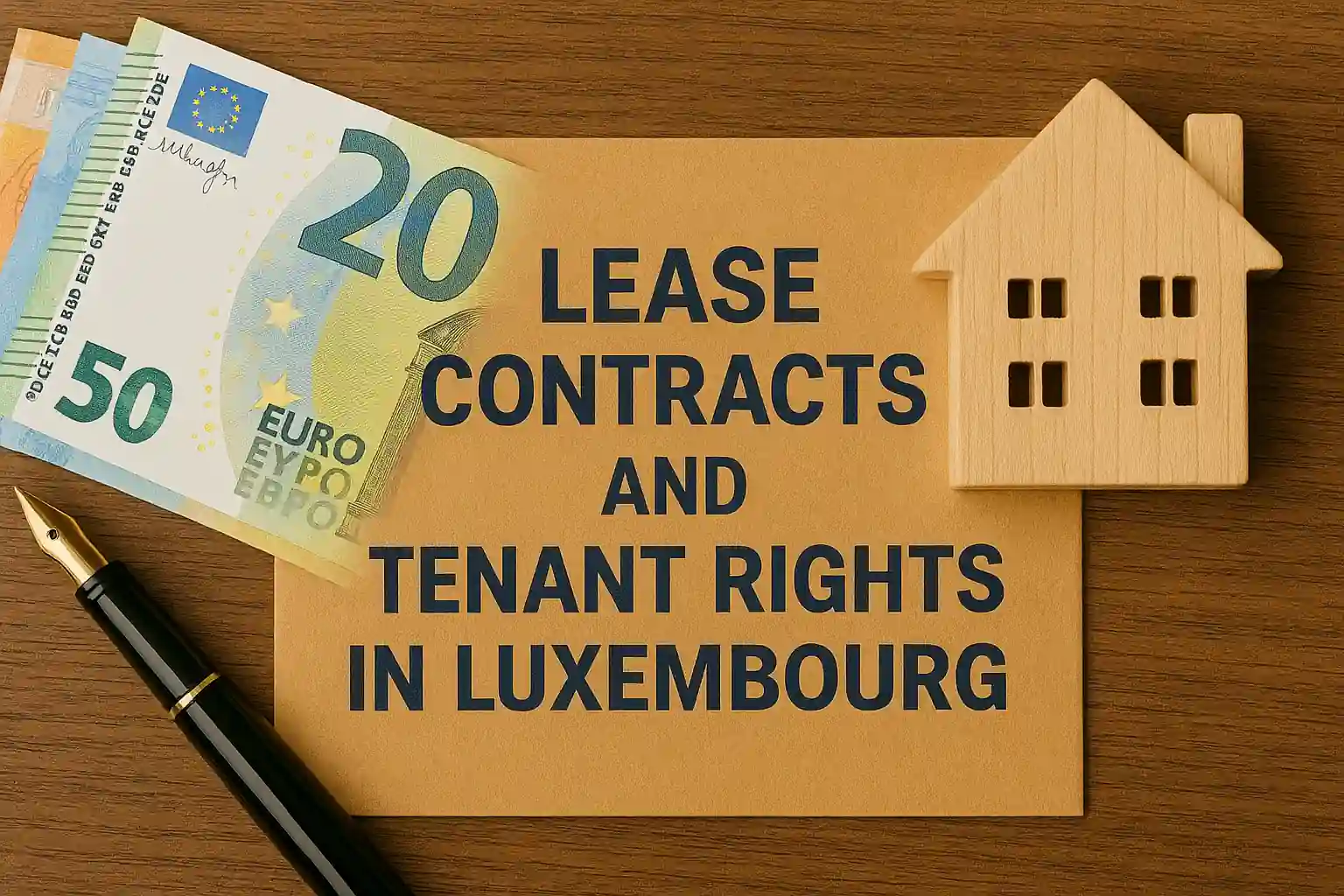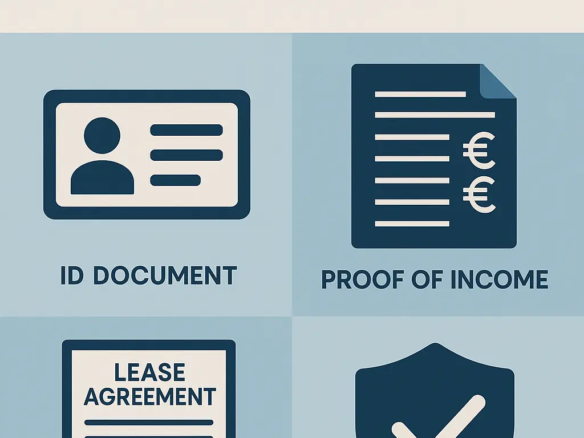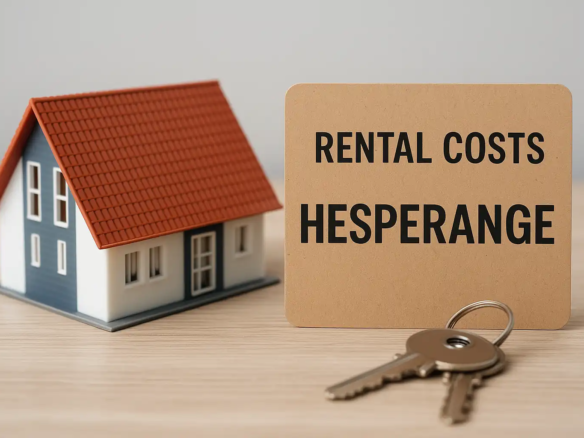Inhaltsverzeichnis
Um sich im luxemburgischen Mietmarkt zurechtzufinden, ist ein umfassendes Verständnis der Mietverträge und des rechtlichen Schutzes für Mieter erforderlich. Mit den jüngsten Gesetzesänderungen, die am 1. August 2024 in Kraft treten, müssen sich sowohl Mieter als auch Vermieter mit den neuen Regelungen vertraut machen, die die Dynamik des Mietmarktes im Großherzogtum erheblich verändern.
Mietverträge in Luxemburg
Ein Mietvertrag ist das grundlegende Rechtsdokument für die Beziehung zwischen Vermieter und Mieter. Gemäß dem luxemburgischen Zivilgesetzbuch, insbesondere den Artikeln 1714 bis 1751, regeln diese Verträge die Rechte und Pflichten beider Parteien während der gesamten Mietdauer. Die jüngsten Gesetzesreformen haben verbindliche Anforderungen eingeführt, die schriftliche Verträge für alle Wohnungsmieten verpflichtend machen und die vorherige Annahme mündlicher Vereinbarungen überflüssig machen..
Zu den wesentlichen Bestandteilen eines gültigen Mietvertrages gehören die genaue Identifizierung aller beteiligten Parteien, eine detaillierte Beschreibung des Mietobjekts einschließlich aller Nebengebäude, der beabsichtigte Nutzung der Räumlichkeiten, die Mietdauer, der Mietbeginn und die monatliche Miethöhe.Bei möblierten Unterkünften muss der Vertrag zudem ein umfassendes Inventar aller bereitgestellten Möbel und Geräte enthalten.
Jüngste Gesetzesänderungen mit Auswirkungen auf Mietverträge
Die Reformen vom August 2024 führten mehrere mieterfreundliche Bestimmungen ein, die die Mietlandschaft erheblich verändern. Insbesondere wurde die maximale Kaution von drei auf zwei Monatsmieten gesenkt, wodurch Mietobjekte für potenzielle Mieter leichter zugänglich wurden.. Diese Änderung befasst sich mit einem der größten finanziellen Hindernisse, mit denen viele Mieter bei der Wohnungssuche konfrontiert sind.
Darüber hinaus legt die neue Gesetzgebung klare Fristen für die Rückzahlung der Kaution fest. Vermieter müssen nun 501 TP3T der Kaution innerhalb eines Monats nach der Abnahme zurückzahlen, sofern keine Schäden vorliegen und die Mietzahlungen aktuell sind. Die restlichen 501 TP3T müssen innerhalb eines Monats nach Erhalt der jährlichen Nebenkostenabrechnung zurückgezahlt werden.. Bei Nichteinhaltung dieser Fristen werden Strafen in Höhe von 10% der Monatsmiete für jeden Monat der Verzögerung fällig.
Mieterrechte und Rechtsschutz
Luxemburg bietet Mietern durch umfassende Gesetze einen starken Schutz. Zu den Mieterrechten gehört der Schutz vor willkürlichen Mieterhöhungen. Das geltende Gesetz begrenzt Erhöhungen auf einmal alle zwei Jahre und begrenzt sie auf 10% über einen Zeitraum von zwei Jahren.Die jährliche Miete darf 5% des vom Eigentümer investierten Kapitals nicht überschreiten, was einen zusätzlichen Schutz vor überhöhten Preisen bietet.
Mieter profitieren zudem unter bestimmten Umständen von einer automatischen Mietvertragsverlängerung. Kündigt keine der beiden Parteien einen befristeten Vertrag, wird dieser automatisch in einen unbefristeten Vertrag mit den gleichen Konditionen umgewandelt. Dieser Schutz verhindert eine plötzliche Vertreibung und bietet Langzeitbewohnern Wohnsicherheit.
Das Gesetz sieht zudem einen starken Schutz vor unrechtmäßiger Räumung vor. Vermieter können Mietverträge nur aus bestimmten Gründen kündigen: Eigenbedarf, Pflichtverletzung des Mieters oder andere schwerwiegende und berechtigte Gründe. Bei Eigenbedarf müssen Vermieter die Immobilie innerhalb von drei Monaten nach Auszug des Mieters beziehen, andernfalls drohen ihnen erhebliche Geldstrafen.
Wohngemeinschaften und Mitmietverhältnisse
Die Reformen von 2024 führten spezifische Rahmenbedingungen für Wohngemeinschaften ein und trugen dem wachsenden Trend zum Co-Living auf dem teuren luxemburgischen Mietmarkt Rechnung. Zwischen dem Vermieter und allen Mitmietern muss ein einheitlicher Mietvertrag abgeschlossen werden, die gemeinsam für alle Mietverpflichtungen haften.. Darüber hinaus ist ein schriftlicher Mitmietvertrag erforderlich, um die internen Vereinbarungen zwischen den Mitbewohnern zu formalisieren.
Dieser Regelungsrahmen schafft Klarheit in einer bislang rechtlichen Grauzone und stellt sicher, dass alle Parteien ihre Pflichten und Rechte in Wohngemeinschaften verstehen.
Praktische Überlegungen für die Einwohner von Hesperingen
Bei der Suche nach einer Mietwohnung in Hesperange oder anderen Gemeinden Luxemburgs ist es wichtig, die Dynamik des lokalen Marktes zu verstehen. Unsere umfassende Leitfaden zu den Mietkosten in Hesperange bietet wertvolle Einblicke in die aktuellen Marktpreise und Erwartungen. Die Mietkaution stellt nur einen Bestandteil Ihrer gesamten Umzugskosten dar. Zu diesen können auch die Maklergebühren (die derzeit 50/50 zwischen Mieter und Vermieter aufgeteilt werden), die erste Monatsmiete und verschiedene Verwaltungskosten gehören.
Eine sorgfältige Dokumentation verbessert Ihre Chancen auf dem wettbewerbsintensiven Mietmarkt in Luxemburg erheblich. Unsere Leitfaden zu Mietunterlagen für Hesperange beschreibt genau, welche Unterlagen Sie benötigen, um sich Ihre Traumimmobilie zu sichern, einschließlich Einkommensnachweis, Ausweis und Vereinbarungen für Ihre Kaution.
Pflichten und Verantwortlichkeiten des Vermieters
Immobilieneigentümer haben nach luxemburgischem Recht besondere rechtliche Verpflichtungen. Sie müssen die Immobilie in einem für den vorgesehenen Zweck geeigneten Zustand übergeben und während der gesamten Mietdauer instand halten. Dazu gehört die Verantwortung für alle größeren Reparaturen, dringende Instandhaltungsarbeiten und die Sicherstellung der Einhaltung der Gesundheits- und Sicherheitsstandards.
Vermieter müssen außerdem die Privatsphäre ihrer Mieter respektieren und dürfen die Nutzung der Immobilie während der Mietdauer nicht willkürlich ändern. Sie sind verpflichtet, notwendige Reparaturen im Voraus anzukündigen und die Mieter zu entschädigen, wenn die Immobilie durch die Arbeiten für längere Zeit unbewohnbar wird.
Kündigung und Kündigungsfristen
Der Kündigungsprozess variiert je nach Vertragsart und Kündigungspartei. Bei unbefristeten Verträgen müssen Mieter eine Kündigungsfrist von drei Monaten einhalten, während Vermieter restriktivere Kündigungsbedingungen haben.. Verträge mit fester Laufzeit erlöschen automatisch mit ihrem Ablauf, Mieter, die jedoch mit Zustimmung des Vermieters über die Laufzeit hinaus bleiben, schließen neue Verträge mit unbefristeter Laufzeit.
Wenn Vermieter aus Eigenbedarf kündigen, müssen sie eine Kündigungsfrist von sechs Monaten einhalten und die ernsthafte Absicht nachweisen, die Immobilie zu bewohnen.Die in anderen Ländern bei beruflichen Umzügen übliche Diplomatenklausel existiert im luxemburgischen Recht nicht, was eine vorzeitige Kündigung für Mieter schwieriger macht.
Streitbeilegung und Rechtsmittel
Luxemburg bietet verschiedene Möglichkeiten zur Beilegung von Mietstreitigkeiten. Bei mietbezogenen Meinungsverschiedenheiten können sich die Parteien an die örtliche Mietkommission wenden, die eine Vermittlung versucht, bevor sie verbindliche Entscheidungen trifft. Ist eine Partei mit den Entscheidungen der Kommission nicht zufrieden, kann sie innerhalb von fünfzehn Tagen beim Friedensrichter Berufung einlegen.
Bei anderen Streitigkeiten sollten Mieter die Miete weiterzahlen und gleichzeitig eine gütliche Einigung anstreben. Gelingt dies nicht, sind oft eingeschriebene Briefe an den Vermieter die Lösung. Für die meisten Mietstreitigkeiten ist der Friedensrichter zuständig, unabhängig von der Höhe des Streitwerts.
Professionelle Beratung und Unterstützung
Mietverträge zu verstehen und Ihre Rechte zu kennen, kann sich als komplex erweisen, insbesondere angesichts der jüngsten Gesetzesänderungen. Egal, ob Sie zum ersten Mal oder bereits erfahrener Mieter sind, professionelle Beratung hilft Ihnen, Ihre Pflichten und Ihren Schutz vollständig zu verstehen.
Bei Zeas Immo kennen wir die Feinheiten des luxemburgischen Mietmarktes, insbesondere in der Gemeinde Hesperange. Unsere Hauptkompetenz liegt darin, Immobilienbesitzern beim Verkaufsprozess zu helfen. Dazu bieten wir Ihnen umfassende Anleitungen zu Immobilienverkauf in Luxemburg Und ImmobilienbewertungUnser umfassendes Verständnis des lokalen Immobilienrechts kommt jedem zugute, der auf dem luxemburgischen Immobilienmarkt tätig ist.
Finanzielle Hilfe und Unterstützungsprogramme
Luxemburg bietet verschiedene finanzielle Unterstützungsprogramme an, um das Mieten zu erleichtern. Neben der Reduzierung der Kautionsanforderungen gewährt der Staat Mietzuschüsse zwischen 10 und 520 Euro monatlich, abhängig von der Haushaltszusammensetzung und dem Einkommensniveau. Diese Zuschüsse richten sich speziell an Haushalte, deren Einkommen nicht ausreicht, um eine angemessene Wohnung zu kaufen und gleichzeitig einen angemessenen Lebensstandard aufrechtzuerhalten.
Der Staat bietet qualifizierten Antragstellern außerdem Unterstützung bei der Kautionszahlung an. Der Staat kann für Kautionen bis zu drei Monatsmieten bürgen. Diese Unterstützung ist besonders wertvoll für Neuankömmlinge oder für diejenigen, die beim Eintritt in den wettbewerbsintensiven luxemburgischen Mietmarkt mit finanziellen Engpässen konfrontiert sind.
Abschluss
Das Verständnis von Mietverträgen und Mieterrechten ist für jeden, der in den luxemburgischen Mietmarkt einsteigt, unerlässlich. Die jüngsten Gesetzesänderungen haben ein ausgewogeneres und transparenteres Umfeld mit verbessertem Mieterschutz, reduzierten finanziellen Hürden und klareren Verpflichtungen für alle Beteiligten geschaffen.
Egal, ob Sie Ihre erste Wohnung in Hesperange mieten oder in eine neue Immobilie anderswo in Luxemburg umziehen: Wenn Sie über diese Anforderungen und verfügbaren Schutzmaßnahmen informiert sind, ist ein reibungsloser Mietprozess gewährleistet. Das Engagement der Regierung für den Mieterschutz, kombiniert mit umfassenden rechtlichen Rahmenbedingungen, unterstreicht Luxemburgs Engagement für einen fairen und zugänglichen Mietmarkt.
Da sich die Mietlandschaft ständig weiterentwickelt, ist es wichtig, über Ihre Rechte, Pflichten und verfügbaren Unterstützungsleistungen informiert zu bleiben. Die neue Gesetzgebung stellt einen bedeutenden Fortschritt auf dem Weg zu einem ausgewogeneren Mietmarkt dar, der die Interessen der Mieter schützt und gleichzeitig die legitimen Rechte der Vermieter respektiert. So werden die anhaltenden Herausforderungen im Wohnungsbau im gesamten Großherzogtum angegangen.




